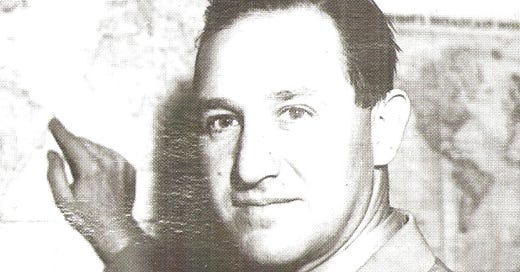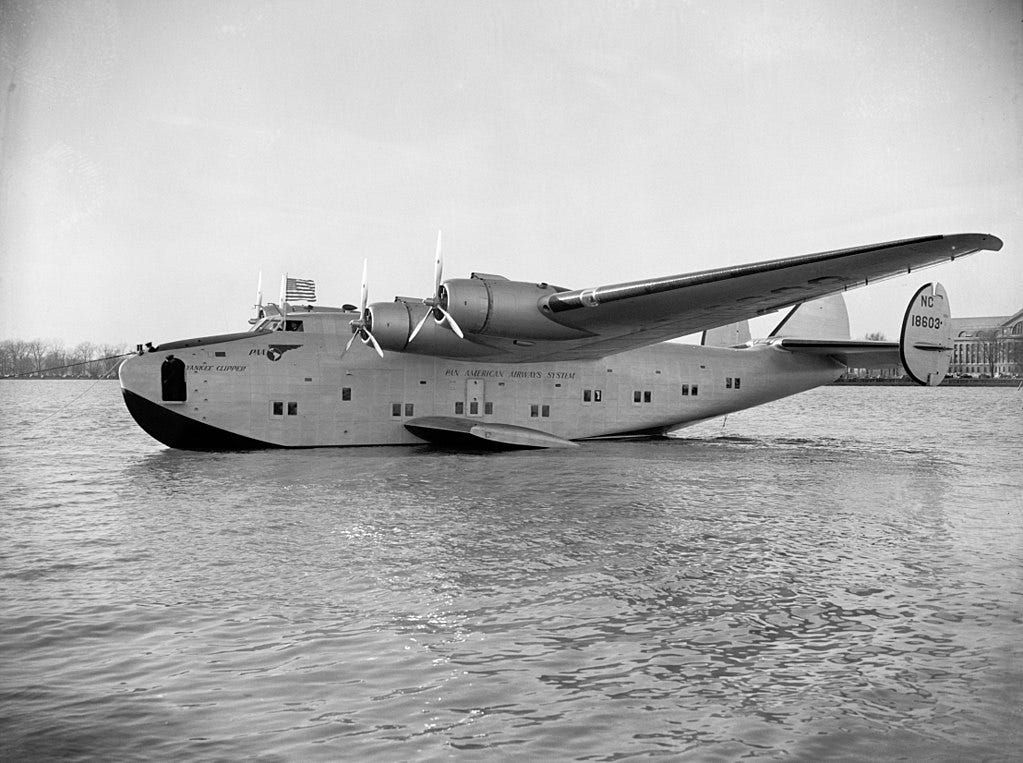Ben Robertson roamed the world in search of stories
In October 1931, Ben Robertson waxed poetic in the New York Herald Tribune about a faraway place that would have been unfamiliar to many of his readers.
The unsuspecting soul, knowing nothing of the power of Pearl Harbor in contemporary history, would not dare think it possible that 16-inch guns lay hidden before him in the thickets of kiawe or that the water where those sailboats lay had been deepened for battleships. In the daytime, one’s thoughts at Pearl Harbor are remote from such recollection. Why should one consider destruction when about him are the lilies of the field? …
Pearl Harbor is a hard-boiled old trooper really; but she looks like a mother of angels. To know the old girl you must go there at night time during the maneuvers. Then she sheds her flowers and really acts herself. The whole side of Oahu from Honolulu to Schofield is lighted with rays from searchlights; the thunder of the guns can be heard on Molokai and on Lanai and on Maui; fleets of airplanes go by towing targets; men in trenches behind the forts at Kamehameha send instructions over field telephones.
Only then, during that roar and fury, does one realize the magnitude of destruction which might emanate from that peaceful lagoon. Only then does one sense the power of Pearl Harbor on the world’s paper.
Only 28 years old when he wrote that prescient description a decade before Pearl Harbor’s place in history was cast, Robertson already was a well-traveled correspondent whose life experience would make him a natural to cover the looming conflict.
No matter how far he roamed, though, he remained a devoted son of Upstate South Carolina.
Benjamin Franklin Robertson Jr. was born June 22, 1903 in a town that was called Calhoun at the time. Forty years later it would be renamed for the university that served as its main attraction: Clemson.
Robertson grew up on campus, where his father and namesake had been a part of the first graduating class in 1896 and would remain to teach chemistry for years. Young Ben also graduated from Clemson, majoring in horticulture, but he knew from a young age that he wanted to expand his horizons, so he went off to study journalism at the University of Missouri.
Once his studies there were complete, he kept heading west and landed a job as a reporter at the Honolulu Star-Bulletin in 1927, beginning a wandering existence that would endure for the rest of his life.
Robertson moved from Hawaii to Australia, where he worked at a newspaper in Adelaide, then had a brief role with the American consulate in Java before heading to New York in 1929 to work for the Herald Tribune.
He joined the Associated Press in 1934, initially in New York, then moved on to London the following year. Robertson relocated to Washington, D.C. in 1936 before heading home to Clemson and writing his first novel, Travelers’ Rest, which he essentially self-published in 1938.
Robertson returned to London in 1940 to cover the Battle of Britain for the New York-based newspaper PM. He endured the Blitz alongside the likes of Edward R. Murrow and Vincent Sheean, sending home descriptions of everyday life while under attack like this piece datelined Sept. 19:
Planes with cargoes of death came over London last night after the blackout and people in the dining room of a big London hotel went right on eating. …
The hotel, like all the rest of London, became part of the night’s battlefield as German planes soared overhead, the motors quite audible in the dining room. Anti-aircraft guns began a terrific cannonade and although the huge hotel trembled slightly the orchestra went on with its music, the crooner singing Rose Marie I Love You. …
In the dining room we talked about Rome and Milton — about how much easier it is to destroy than to create, about many sad, serious things. At midnight the orchestra played God Save the King and we stood up. Just as the last notes were finished the guns gave a roaring blast and everyone laughed.
I started to walk home because there were no taxis about, but soon turned back. The London sky was crimson with flame, guns were firing all over the city. German planes were about in many directions, bombs were falling in London areas, anti-aircraft shells were bursting in the starry sky, a yellow harvest moon was shining, and an owl was hooting.
I hurried back to the hotel and stayed the night on a sofa in a friend’s room. It was impossible to sleep so I counted the hours until daybreak. All night the guns roared.
In 1941, Robertson published his second book, I Saw England, which conveyed his experiences during the height of the bombings. He also became an outspoken proponent of American intervention in the war, using regular speaking engagements to assail isolationists like Charles Lindbergh.
Among assignments in India and Russia for PM, Robertson wrote yet another book, 1942’s Red Hills and Cotton: An Upcountry Memory, his loving tribute to the home he never fully left behind no matter how far away he might be.
Early in 1943, Robertson headed back to the war. He rejoined the Herald Tribune with an assignment to familiar territory: London. The fastest civilian route across the Atlantic was via Pan Am’s Yankee Clipper, a Boeing 314 flying boat designed for long-haul flights.
Robertson’s flight, which also included a number of entertainers headed to Europe on a USO tour, departed New York on the way to Southampton, England, with a scheduled stop in Lisbon.
Around 6:30 p.m. Portugal time on Feb. 22, 1943, the plane’s wingtip hit the Tagus River while on approach to the Cabo Ruivo airport, sending it spinning out of control. Twenty-four of the 39 people aboard died in the crash, including Robertson and another war correspondent, Frank Cuhel of Mutual Broadcasting.
When Portuguese authorities recovered Robertson’s body a few weeks after the crash, they made a positive identification from a heavy silver bracelet on his wrist that read “Ben Robertson - New York Herald Tribune.” The official cause of death was drowning.
Word of the crash reached South Carolina on Feb. 24, and though Robertson was officially listed as missing, news accounts made it clear there was no real hope he had survived.
Tributes penned by co-workers and friends attempted to encapsulate the combination of worldliness and down-home humility that made Robertson so beloved, as in the piece by Harry S. Ashmore of the Greenville News that ran in Feb. 25 editions:
He wrote for PM on the far left and for the Herald Tribune and the Saturday Evening Post on the far right, and it is a tribute to his integrity, his professional honesty, to say that he wrote just the same for all of them.
He stubbornly clung to his South Carolina accent and his South Carolina outlook. Even after he took to spending weekends at Clivenden with Lord and Lady Astor and became a personal friend of Eleanor Roosevelt and Winston Churchill he worked hard at keeping his mind clear, sophisticated, almost naive.
His last employer, the Herald Tribune, cast that personality trait less as naivete and more as an ability to relate to people of all stripes.
Ben Robertson Jr. was a Carolinian and a newspaper man. His rather soft Southern voice concealed the acuteness of his understanding, the toughness of his courage and his limitless curiosity.
These may seem to have been somewhat harsh and astringent qualities; but in him they were mingled with a quick, warm sympathy for all classes and kind of mankind — a sympathy which made him as good and careful a reporter of some dull local story as of the clash of empires. He roved the world, always quietly alert to its infinite variety and peculiarity. …
One can readily say that American journalism is the poorer for his death; one cannot so easily express the sense of personal loss which he leaves among his devoted friends and fellow workers.





